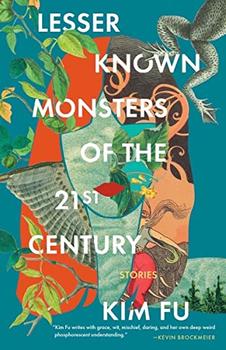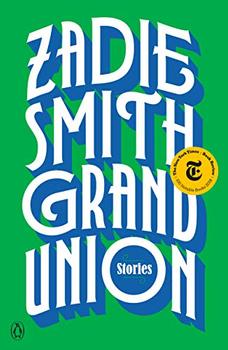Summary | Excerpt | Reviews | Beyond the book | Read-Alikes | Genres & Themes | Author Bio

Thirteen Stories
by Helen DeWittIn this erudite collection of 13 stories, Helen DeWitt explores the theme of stymied creativity, particularly as a result of financial and bureaucratic intrusions into the process of making art. Her protagonists include a painter forced to take an odd assignment from a wealthy benefactor when her paintings don't sell, the eccentric author of a children's book series whose agent does not share his affinity for statistics-based math problems, and a musician yearning for independence from under the yoke of recording contract-imposed restrictions.
Some of the stories are linked by characters as well as theme. The son of the children's book author appears in a later story in which he invites a newly arrived, fresh-faced Iowan to move into his Manhattan apartment. In this story, DeWitt cleverly turns the trope of the Midwestern rube on its head, as the Iowan manages to expertly navigate New York City life both personally and professionally, even solving a dispute between his roommate's father and the father's editor.
In "Climbers," one of the collection's best, a little-known Dutch author with a history of mental illness is tossed haphazardly into the complex world of New York City publishing, as agents and hangers-on attempt to publish his novel and elevate him to the status of a literary celebrity. The final story, "Entourage," takes a sharp turn into surrealism, as a book collector begins amassing an army of translators to help him read his many foreign language texts. He then decides it would be more prudent to hire children for this purpose, as they can be paid in candy, making the protagonist something of a scholarly Willy Wonka (or enslaver of children, depending on interpretation).
The characters are unrelentingly charming and this is due to DeWitt's powers of description as well as her unconventional linguistic choices. For example, the Iowan new to the Big Apple enthusiastically relates his brush with celebrity to his jaded roommate, "'Dude!!!!!!!!! I saw Harvey Keitel eating pancakes!!!!!!!!!'" DeWitt engages in fantastical flights of fancy and bizarre exposition, as when describing a character's shirt, a polo featuring a turtle emblem: "If a garment quietly clothes its owner while he speaks, this cannot be uncomplaining loyalty, it cannot be touching, because this is what garments do. (What else would it do? Walk off in a huff?) And yet there was a touching loyalty in the quiet uncomplaining persistence of the turtle on the dark green breast. It had been there and it was still there."
DeWitt is a literary descendant of Nikolai Gogol and Fyodor Dostoevsky; there is a palpable pathos to her stories, and a sense that her bumbling characters are struggling against a preordained outcome. However, like Dostoevsky in particular, DeWitt has a flair for the absurd, and uses humor effectively to ease the bleakness of her characters' situations.
Her quirky narrative choices and use of jargon may alienate some readers, however. There are somewhat random barrages of math, a few long descriptions of computer programming, extraneous footnotes, and mentions of obscure literary movements and authors. Some of these tangents seem difficult for the sake of being difficult. In response to being asked what he truly cares about, one of DeWitt's author characters remarks, "I really like the fact that 'front seat' is a spondee. And it's reflected in the spelling, the two separate words. And one thing I really hate is the way they try to make you agree to 'backseat,' which is obviously trochaic." Comments like these require endless unpacking and specific knowledge of literary terms. Even after one sorts out the meaning of what is being said, there is still the question of why this character is choosing to say such an odd thing.
DeWitt's prose has a pastiche-like quality with these asides, and whether one finds the style pretentious or clever will be a matter of taste. For literary theory "nerds" and those with slightly offbeat narrative tastes, there is a lot to appreciate.
![]() This review was originally published in The BookBrowse Review in May 2018, and has been updated for the
October 2019 edition.
Click here to go to this issue.
This review was originally published in The BookBrowse Review in May 2018, and has been updated for the
October 2019 edition.
Click here to go to this issue.

If you liked Some Trick, try these:

Lesser Known Monsters of the 21st Century
by Kim Fu
Published 2022
A dazzling and daring debut story collection by PEN/Hemingway finalist, Kim Fu.

by Zadie Smith
Published 2020
Zadie Smith has established herself as one of the most iconic, critically respected, and popular writers of her generation. In her first short story collection, she combines her power of observation and her inimitable voice to mine the fraught and complex experience of life in the modern world.
Your guide toexceptional books
BookBrowse seeks out and recommends the best in contemporary fiction and nonfiction—books that not only engage and entertain but also deepen our understanding of ourselves and the world around us.